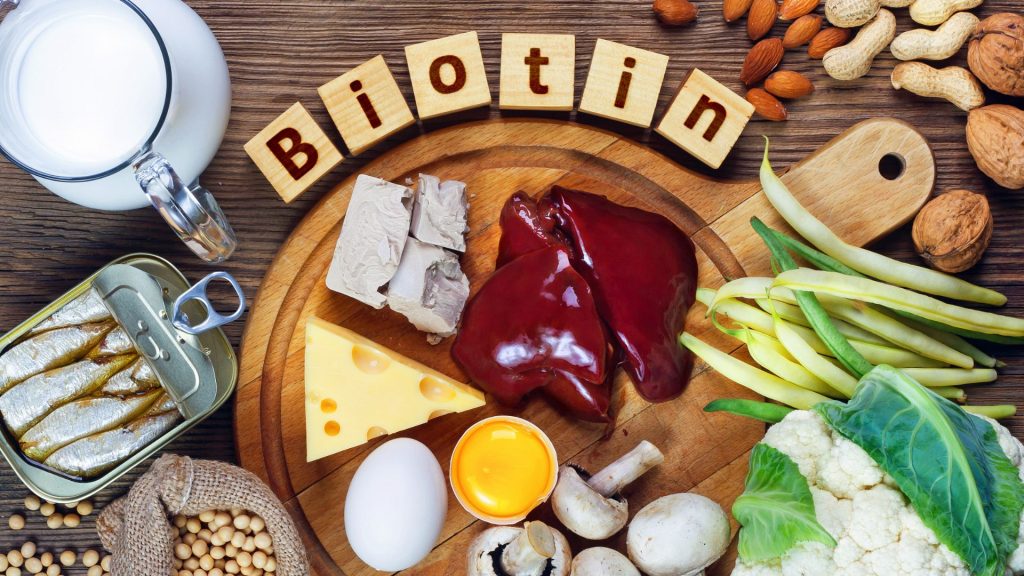Everything You Need to Know About Biotin

Introduction
Growing up we all looked up to the beauty supplements and products that will help to retain our youthful appearance and the research became fruitful. Biotin is one of the most sought-after supplements among women all over the world. Besides working its magic on hair, skin, and nails, it also contains health benefits that maintain overall well-being. Whether you’re looking to enhance your beauty regimen or understand the significance of biotin in your diet, this complete overview will provide you with everything you need to know about this essential nutrient. Let us continue to read the entire article to know everything about biotin and more.
Biotin, also known as vitamin B7 AKA vitamin H, is an essential nutrient that plays a lead role in various bodily functions. From sustaining metabolism to facilitating healthy hair, skin, and nails, biotin is a key player in supporting overall well-being.
Avertisement
How are they formed?
Biotin is not formed within the human body instead, it must be consumed or absorbed from external sources. The intestinal bacteria in our tummy can synthesize small amounts of biotin, but it is not sufficient to meet our daily requirements. Thus, we are compelled to consume a recommended dosage of biotin. It is formed by certain bacteria, yeasts, and moulds. These microorganisms produce biotin as part of their metabolic processes. Some food sources, such as organ meats, eggs, nuts, seeds, legumes, whole grains, and certain fruits and vegetables, contain biotin due to the presence of these microorganisms or the absorption of biotin from the soil.
Avertisement
Health benefits
Biotin offers several health benefits due to its essential role in various bodily processes. Here are some key health benefits associated with biotin:
It is known for promoting healthy hair growth and maintaining hair strength. That is the reason it is a standard ingredient in many hair care products. Studies have also proven that biotin deficiency in a body can lead to hair thinning and hair loss.
Biotin is involved in maintaining healthy skin and common ingredient in collagen creams. It aids in the supply of fatty acids that are necessary for maintaining skin moisture and helps the formation of skin cells. Biotin deficiency may contribute to dry, itchy skin and rashes.
Besides hair and skin, biotin is believed to support nail health by promoting strength and reducing brittleness. It helps to keep your claws strong and sharp. Some studies suggest that biotin can improve glucose utilization and increase insulin sensitivity, which is beneficial for individuals with diabetes.
Biotin helps in the metabolism of carbohydrates, fats, and proteins. It helps convert these macronutrients into energy that the body can utilize effectively. Pregnant or nursing women are recommended to add Biotin as their prenatal vitamin as it is important during pregnancy for the development of the fetus. It also plays a role in embryonic growth and is necessary for normal fetal development.
Avertisement
Biotin as a Supplement
Biotin supplements are available in the form of capsules, tablets, or soft gels and are often marketed for their benefits for hair, skin, and nail health. Here are some key points to consider regarding biotin supplementation:
How much is too much?
The recommended daily intake of biotin supplements for adults is around 30 micrograms (mcg). It typically provides much higher doses, ranging from 5,000 mcg (5 mg) to 10,000 mcg (10 mg). However, there is no established upper limit for biotin intake as it is considered to have low toxicity.
Safety considerations
Biotin supplements are generally considered safe when taken within the recommended dosage. However, high doses of biotin supplements can interfere with certain laboratory tests, such as those used to measure thyroid function] and troponin levels. Inform your healthcare provider if you are taking biotin supplements to avoid potential misinterpretation of test results.
Consult a healthcare professional
It is recommended to consult with a healthcare professional before starting any dietary supplement, including biotin. They can assess your specific needs, evaluate potential interactions with medications or medical conditions, and provide guidance on appropriate dosage and usage.
Avertisement
Possible side effects
Just like there are two sides to the coin, something beneficial can also be harmful. In the case of biotin, there might be possible side effects that you must be aware of before including it in your diet:
Allergic reactions
In rare cases, some individuals may experience allergic reactions to biotin supplements. Symptoms can include itching, swelling, rash, dizziness, or difficulty breathing. If you experience any of these symptoms, discontinue use and seek medical attention immediately.
Interference with lab tests
Biotin supplements can interfere with certain laboratory tests, leading to inaccurate results. High doses of biotin can affect tests that measure hormone levels (such as thyroid function tests) and troponin levels (used to diagnose heart attacks). It is crucial to inform healthcare providers about biotin supplementation before undergoing any lab tests.
Acne breakouts
The irony of a side effect such as acne from a nutrient that is supposed to make acne go away is too high. Some individuals have reported experiencing acne breakouts as a side effect of biotin supplementation. However, the link between biotin and acne is not fully understood, and more research is needed to establish a clear connection.
Digestive issues
In rare cases, high doses of biotin supplements may cause digestive issues such as nausea, diarrhoea, or cramping.
In conclusion, biotin is an essential nutrient that plays a vital role in various aspects of our health. From promoting healthy hair, skin, and nails to supporting metabolism, immune function, and overall vitality, biotin is involved in numerous physiological processes. While our bodies can produce biotin naturally, ensuring an adequate intake through diet or supplementation is important.
Biotin-rich foods include egg yolks, organ meats, nuts, seeds, legumes, fish, dairy products, avocados, sweet potatoes, and mushrooms. These foods can be incorporated into a well-balanced diet to help meet our biotin needs. Overall, understanding the role of biotin in our bodies and making informed choices about our diet and lifestyle can contribute to optimal biotin levels and support our overall health and well-being.




Responses